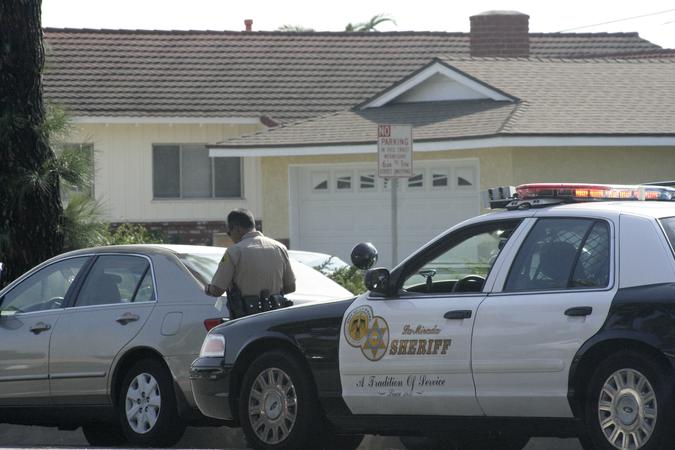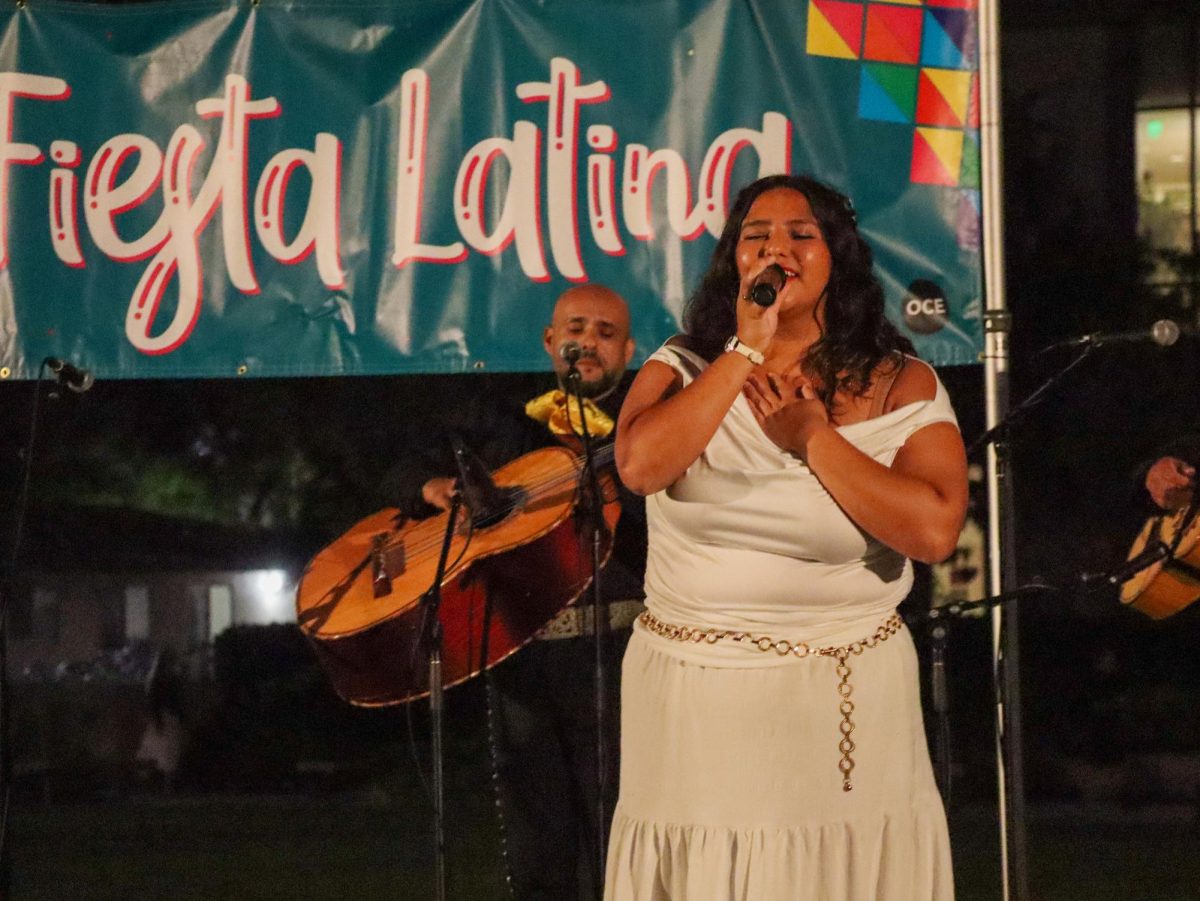Across the street from the new Crowell School of Business on Biola Ave. sits a line of cars parked under signs that read “NO STOPPING ANYTIME.” For the most part, these cars sit there peacefully violating the signs, but occasionally they get a wake up call.
Last Monday, Deputy Reyes of the La Mirada Sheriff’s Department slowly made his way down the line of cars, placing yellow tickets for $40 on each car parked in the no stopping zone. After 15 minutes of ticketing, more than eight cars had tickets under their windshield wipers.
“It’s a shame because my college student can’t afford a ticket,” Lt. Bob Esson of the La Mirada Sheriff department said. But the parking violations have to be enforced because the drivers turning out of Cortina Drive and onto Biola Ave. have a blind corner if there are cars parked there, said Reyes. Esson said that the problem occurs predominantly at the beginning of each semester when students are unaware they are violating the street signs.
The signs went up 3-12 months ago, according to Ken Bascom, Senior Director of Facilities Planning and Construction. Bascom actually went to the city and attempted to get a red curb painted on the street to warn students and faculty who might have assumed those signs were about street sweeping.
“They really kind of laughed at me and said, ‘You’re telling me that college students and faculty members can’t read?’” Bascom said.
But the approximately 20 spaces underneath the signs are only a small element of Biola’s parking problem.
The city of La Mirada said that for every 100 full-time students Biola should have 68 parking spaces. And with the amount of new students this year, Biola is not meeting that standard.
“We’re actually a little bit short of the number of spaces we should have with the students,” Bascom said.
Biola has taken detailed counts of the available parking at the busiest times of the day. They are aware of the parking problem and have plans for future structures to be built as soon as funds are ready.
The next parking structure will be built in lot H, between the gymnasium and baseball field. It will be a five-story structure, adding an additional 650 parking spots to Biola’s campus. The tough issue will be housing enough parking during construction, since there will be 150-200 spots unable to be used at the site.
“You don’t drop it in place completed,” Bascom said. Having less spots will mean either allowing students to park on McNally field, or creating a freshman car ban, such as those enforced at Point Loma and Westmont.
“There’s a lot of thought going into it, and it’s a loaded topic, but we certainly are aware of the urgency of it,” Bascom said.
In addition to the parking limitations on Biola Ave., many of the side streets around Biola have recently been changed to permit parking only. Roma Drive was the first to be permitted with Biola Ave., and Calpella St. followed.
“It’s really been kind of sad to see that develop because we’ve been our own worst enemy there,” Bascom said.
If a neighborhood gets three-fourths of the houses on their block to sign a petition for permit parking, the city must comply.
“Some neighbors really hate it [students parking on their streets] because they can’t park there; their friends can’t park there,” said Bascom. “But to be honest with you, it’s Biola students parking in a discourteous manner that has caused it.”
Bascom said that the residents on Roma Drive, the street directly behind Stewart, petitioned for permits because they were annoyed with students being loud late at night and leaving their trash in the neighborhood.
Biola has also received complaints that students move the residents’ trashcans from the street to the lawn in order to clear themselves a parking spot, making the trashcans inaccessible to the trash trucks.
As Biola students are forced out of the neighborhoods, many are making due by parking in the no stopping zones or simply driving around for 20 minutes before finding a spot. If they are smart, Bascom says they will drive straight to the back of the parking structure and park in one of the most frequently open spots.
“It’s probably the single most urgent decision that Biola faces right now,” Bascom said. He expects there to be a final decision on parking within the next three to five months.







